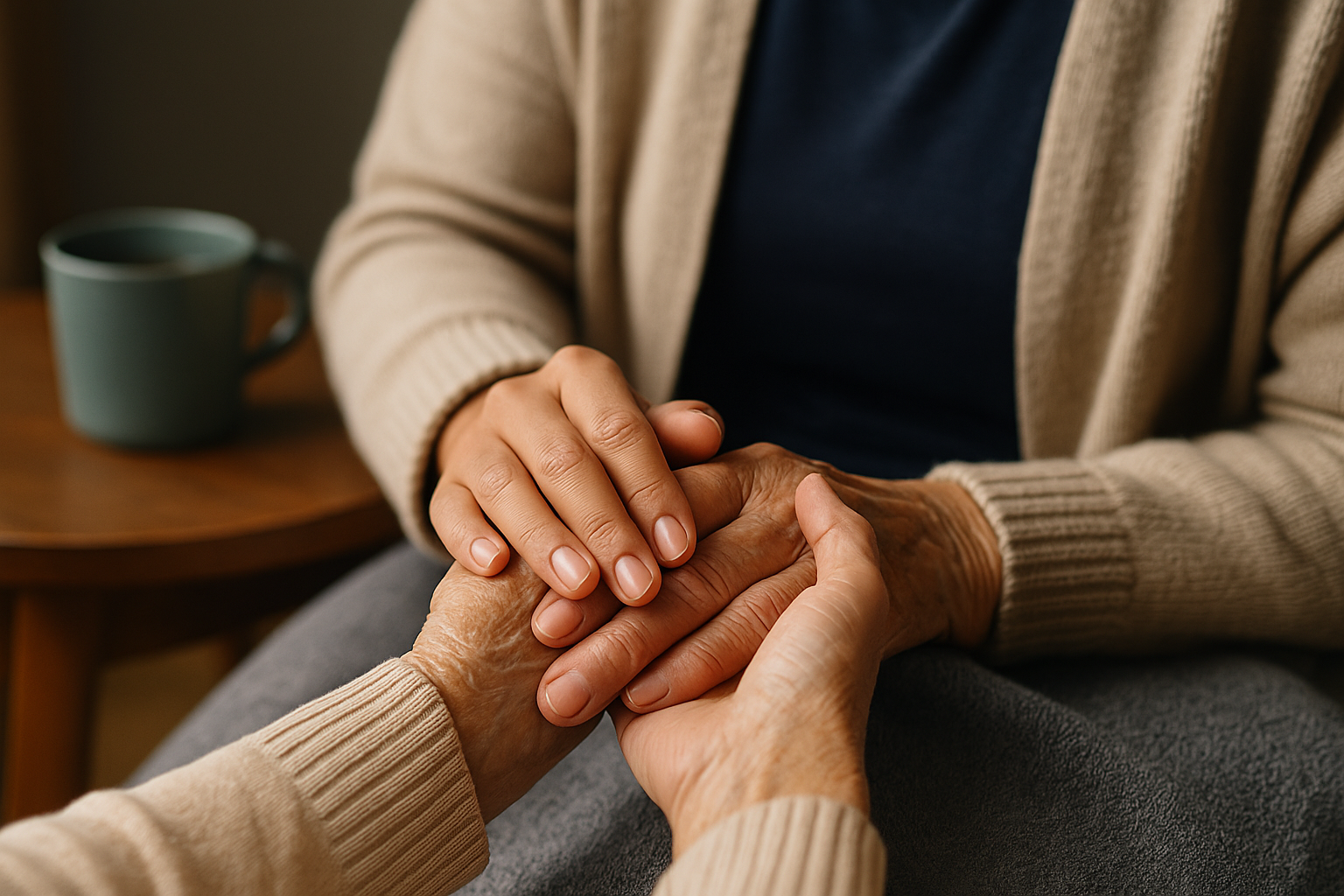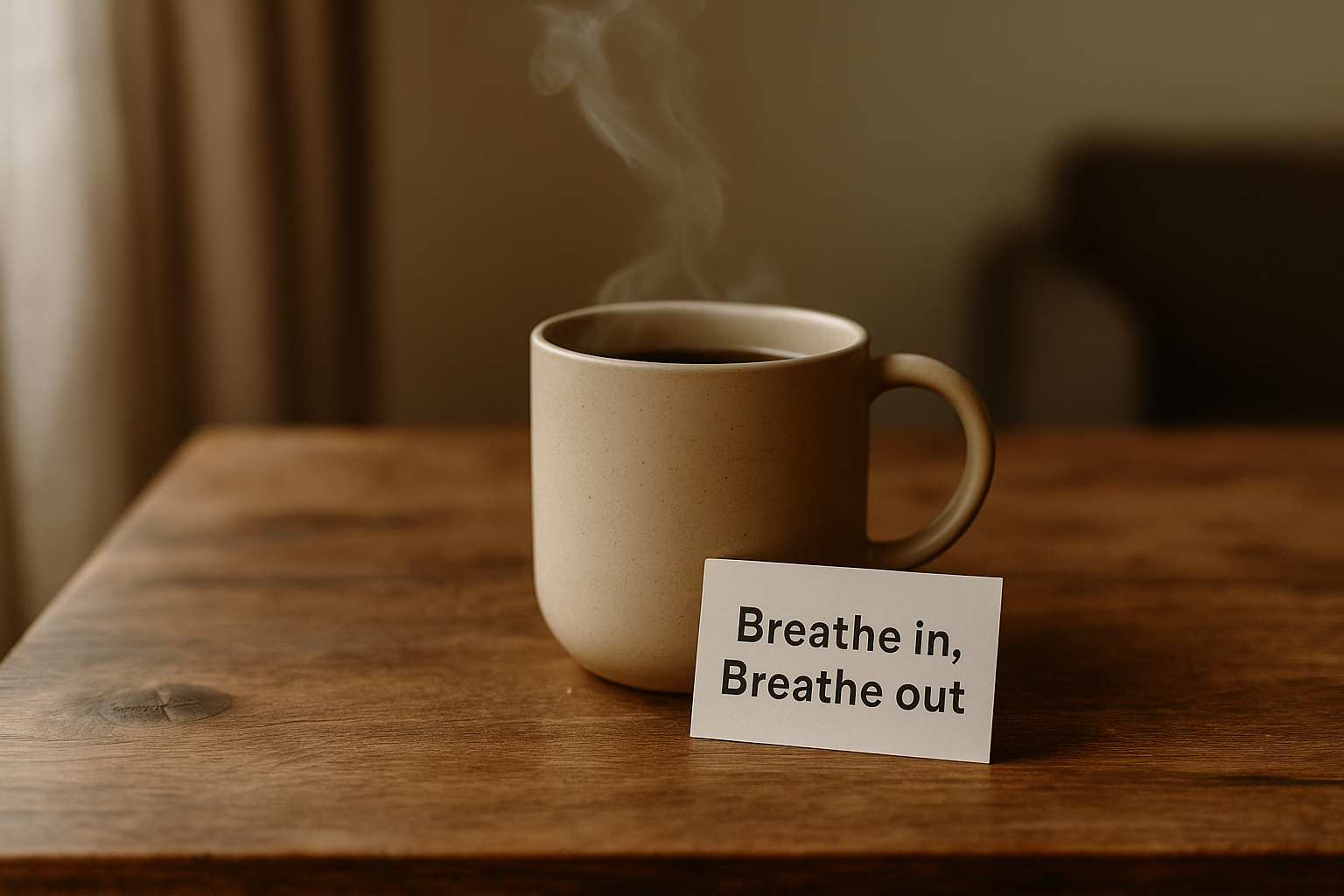Anticipatory grief
You may find yourself grieving before a loss has happened — especially with progressive conditions or serious illness. You’re not “giving up”; your brain is preparing for change. Naming it often eases the weight.
Caring for someone you love can be one of the most meaningful things you’ll ever do — and also one of the most exhausting. If you’re running on empty, you’re not failing — you’re human. This page offers clear explanations, practical steps, and gentle permission to take up space too.

You may find yourself grieving before a loss has happened — especially with progressive conditions or serious illness. You’re not “giving up”; your brain is preparing for change. Naming it often eases the weight.
When caring ends, people often feel both devastation and relief. Both can be true. Identity wobbles are common if caring shaped your days. Gentle routines, connection, and small goals help you rebuild.
Snappy, foggy, running on adrenaline? That’s your nervous system stuck on “keep going”. Tiny refuels matter: a proper sandwich, a 10-minute walk, two quiet minutes with a tea.
Set a 2-minute timer. Shoulders down, slow your out-breath (in 4 — out 6). You’ve just signalled “safe” to your nervous system. Repeat often; it stacks.

“Could you sit with Mum on Tuesday 2–4pm so I can do food shopping? I’ll leave her meds and the TV remote.” Specific + time-boxed requests get more yeses.
One small thing, same time daily: watering a plant, a cuppa in the doorway, a single journal sentence. Routines calm busy brains.
Keep a single page with the essentials: diagnosis, meds (dose/time), allergies, NHS/CHI number, GP/consultant contacts, next appointment. Photograph it so it’s on your phone too.
Two pairs of ears help. Ask the clinician if you can record a summary on your phone. Agree “one key question” before you go.
“What’s the one thing you want me to watch for this week?”
“If X happens, who do I call?”
“I can do evenings, but I can’t do nights.” · “I can manage meds; I can’t do heavy lifting.”
Share roles with a simple rota. If someone can’t help in person, ask for admin tasks, calls, or funding a one-off cleaner.
Feeling guilty doesn’t mean you’re doing wrong. Check your actual capacity today, not your imagined one.
Ask your local authority for a Carer’s (Adult Carer Support) Assessment. It looks at your needs and can unlock support or respite. Take a list of what’s hard on a typical week.
Short breaks, sitting services, day centres. Even a few hours can reset your body and mind — it’s maintenance, not luxury.
School, caring, and growing up is a lot. You deserve support, friends, and time to be young. Young carer services can help with advocacy, clubs, and grants.
Routine, visual cues, and calm tone go a long way. Try dementia-friendly gardening: raised planters, strong-scent herbs, safe paths, and clear labels.
Hospice teams focus on comfort — for the person and for you. It’s okay to ask: “What should I expect tonight?” · “Who do I call if X happens?”
Not sleeping for days, thoughts of harming yourself, feeling you can’t keep someone safe — these are signals to get urgent support.
5-4-3-2-1 senses, feet on floor, long exhale. You don’t need to “fix” everything right now; you just need this moment to pass.
The information on this page is for general understanding and support. It is not a substitute for professional medical, psychological, or legal advice. If you feel unable to keep yourself safe or someone else is at risk, call 999 (UK) immediately. If you’re outside the UK, contact your local emergency number.
For non-emergency concerns, consider speaking with a qualified health professional or one of the support services listed on our site.